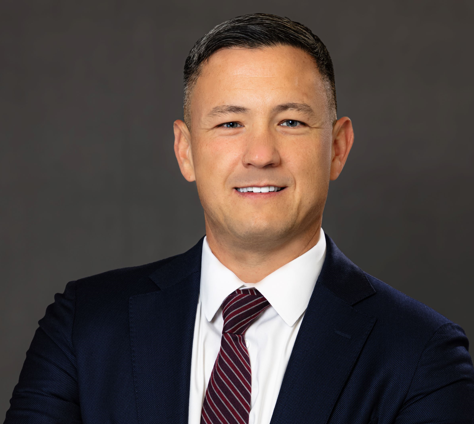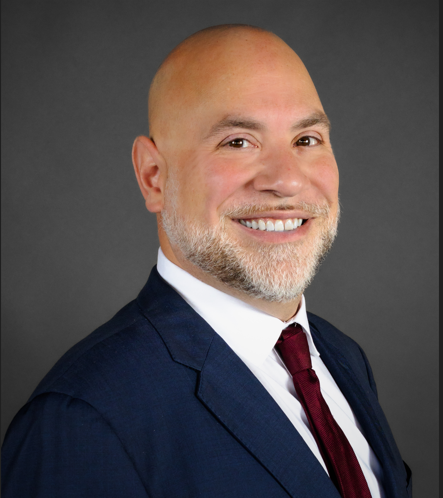Workers' Compensation
The past thinking of law firms (and often clients) to staff Workers’ Compensation files as a commodity is over. While this approach managed legal spend, it ignored that Workers’ Compensation claims are long-term significant claims. Employers (with significant self-insured retentions) and insurers alike should expect that each claim be handled meticulously from its inception through hearing and appeal. We base our practice on this approach.
We assign matters to one lawyer with the commitment that this lawyer handles the entire matter. This ensures collaboration, accountability and responsiveness, as well as early evaluation and claim resolution. Our lawyers have immense experience with the fundamentals of Workers’ Compensation claims including:
Coordinating claim investigations and prepare pre-hearing conference statements;
Attending hearings;
Conducting medical and lay witness depositions;
Preparing post trial briefs for submission to law judges;
Preparing, filing and arguing administrative review and court appeals;
Negotiating and drafting lump sum settlement agreements;
Challenging/Negotiating Medicare Conditional Payment Notices and Demands.
Our team is much more than fundamentals. We have taken this foundation and created a practice that is designed for each clients needs.
State Specific Knowledge
Each state has enacted its own Workers’ Compensation laws, making it vitally important to seek the services of a firm whose lawyers are thoroughly conversant with the laws of the state where the claim is filed. Under the law in most states, every business must have some form of Workers’ Compensation insurance to cover injured employees.
Industry Specific Knowledge
We have an extensive record of successfully defending private and public clients in a broad range of industries, including (to name just a few): trucking, manufacturing, retail, hospitality (including both restaurants and hotels), food production, long-term care, home health care, public services, and education. We also frequently counsel employers on ways to proactively reduce risk of worker injuries.
Injury Specific Knowledge
We have successfully handled cases involving both major and minor injuries, in both the accident and occupational disease contexts. Our extensive experience includes those involving slips and falls, motor vehicle accidents, carpal tunnel syndrome, hearing loss, psychological stress, cardiac events, death, and dependency benefits.
Award Calculation Knowledge
Most states apply a schedule of injuries in their Workers’ Compensation laws. These schedules lists and value injuries that involve the loss of use of a body part or sense (such as hearing or vision). Our lawyers understand that a claimant must reach maximum medical improvement (MMI) before being eligible for a scheduled loss award. They understand the importance of appropriate award calculation.
Fraud
Sadly, the cost of fraud is not limited to any one entity. Policyholders, employers, insurers, consumers and shareholders all bear the expense. At its most basic, Workers’ Compensation fraud occurs when an individual purposely lies to obtain some benefit or advantage, or to cause some benefit that is due to be denied. We have also successfully investigated and litigated Workers’ Compensation fraud claims.
Medicare Set-Aside (MSA)
One of the distinctive ways we provide clients with a strong competitive advantage is through advocacy during the Medicare Set-Aside (MSA) process. We assist in calculate MSAs, including reducing narcotic consumption/costs, and submit applications to CMS for pre-settlement approval.
Third Party Actions and Liens
Under most Workers’ Compensation laws, a worker injured by the negligence of another can collect Workers’ Compensation benefits and then recover in a civil suit against the actual wrongdoer. Under these circumstances, the insurance carrier that paid benefits has a lien on the proceeds of the third-party settlement. We have achieved determinations for our clients as well as favorable global settlements involving the claimants in Workers’ Compensation cases and related third-party actions.
HIPAA and State Privacy Laws
The Health Insurance Portability and Availability Act often creates confusion for employers, Workers’ Compensation claims professionals, and lawyers. The law applies to “covered entities” and governs “personally-identifiable health information” (PHI). PHI includes the First Report of Injury. Our lawyers cut through any confusion and understand that HIPAA does not hinder the processing and investigation of claims. We understand, however, how to protect employers and insurers alike from any privacy violation.
The Jones Act
The Jones Act is a federal law that gives seamen who were injured in the course of their employment the right to sue their employer for personal injury damages. Unlike almost all land-based workers, seamen are not entitled to workers’ compensation benefits under either state or federal law. Because injured seamen cannot file workers’ compensation claims against their employers, the only compensation that they are legally entitled to receive for their injuries is through the Jones Act and the general maritime law.
Longshore and Harbor Workers’ Compensation Act
The Longshore and Harbor Workers’ Compensation Act involves compensation for employees injured on navigable waters or adjoining areas. If a person is injured working on the docks or engaging in some other type of maritime activity, but is not considered a seaman, then the claim is most likely controlled by the Longshore Harbor Worker’s Compensation Act (also known as the “LHWCA”). This Act limits an employer’s liability to statutory benefits which the employer pays regardless of negligence in return for immunity from getting sued by the injured employee, the injured employee retains the right to bring a tort action against a third party.
Federal Employers Liability Act/Railroad Liability
When a railroad worker alleges an injury on the railroad, his or her remedy under the Federal Employers Liability Act (“FELA”) is to file suit against his railroad employer. Unlike most industries, the nation’s railroads are constantly finding themselves being sued by their employees for claims ranging from traumatic injuries, cumulative trauma injuries, or occupational diseases allegedly resulting from their work on the railroad. These cases typically involve large demand, complex medical causation issues, and volumes of documents. Our lawyers have years of experience defending the nation’s railroads against claims under the FELA.
Americans with Disabilities Act
The distinction between Workers’ Compensation laws and the ADA is significant because, if the ADA applies, it might impose some heightened responsibilities on an employer. Once the ADA applies, the employer’s treatment of the employee must conform to ADA standards. For example, an employee “injured” on the job may need to take leave for recovery. Workers’ Compensation laws may allow the employer to require that the employee reach a “full recovery” before returning to work so as not to exacerbate the injury. However, if the employee is also considered “disabled” under the ADA, the employer may not be able to require full recovery. Instead, the ADA requires the employer to make “reasonable accommodations” for a disabled employee who can still perform the essential functions of the job. Reasonable accommodations might include installing a ramp for a wheelchair, providing a returning employee with “light” or modified duties or hours, or assigning the employee to a temporary new position. A reasonable accommodation must be made for a “disabled” employee unless the employer can show it would impose undue hardship.
Proactive Opioid Management
To prevent the mismanagement of opioids, companies can employ a Workers’ Compensation panel to establish safe-prescribing protocols that protect injured workers from opioid abuse and reduce costs related to workers’ compensation claims. Forty-nine states have electronic, state-managed prescription drug monitoring programs (PDMPs) in place to help curb opioid abuse and overprescribing by physicians. Our team is well-versed in the application of these programs to the benefit of our clients.
Loss Transfer Arbitration
If the person was in the course of their employment at the time of a motor vehicle accident, a Workers’ Compensation insurer often becomes the “primary” insurance responsible for paying out lost wages and medical benefits normally the responsibility of the motor vehicle carrier. Proceedings to recover loss transfer benefits occur outside Workers’ Compensation courts through intercompany arbitration. Our team is experienced at representing clients in these proceedings.
Risk Reduction Program
Most successful injury and illness prevention programs include a similar set of common-sense elements that focus on finding all hazards in the workplace and developing a plan for preventing and controlling those hazards. Management leadership and active worker participation are essential to ensuring that all hazards are identified and addressed. Workers need to be trained about how the program works and the program needs to be periodically evaluated to determine whether improvements need to be made.
Several issues are important in ensuring the success of the overall program, and are interrelated. These include: management leadership; worker participation; hazard identification and assessment; hazard prevention and control; education and training; and, program evaluation and improvement. Our lawyers understand that when it comes to injury and illness prevention programs, every business is different, and one size certainly does not fit all.













































































WHAT TO DO WHEN YOU ARE NOT BEING PAID
The most common issue I confront as a construction attorney is what to do when my client is not being paid. The standard approaches include sending a demand letter, making

Remedial Work Does Not Extend the Deadline to Commence an Action on a Payment Bond
As most contractors are aware, if they are not paid for their labor, materials, and/or services, they can strengthen their position prior to filing a lawsuit by filing a mechanic’s

A Recent Superior Court Decision May Affect Subcontractor/Supplier Mechanic’s Liens
In a recent decision, the Superior Court discharged the mechanic’s liens of several subcontractors, because the general contractor had already filed a lien for the unpaid contract balance. Wegrzyniak v.

Slander of Title is Almost Always an Inappropriate Response to a Mechanic’s Lien
On rare occasions, I have had to contend with a claim of “slander of title” being filed in response to a mechanic’s lien. A slander of title claim requires:

